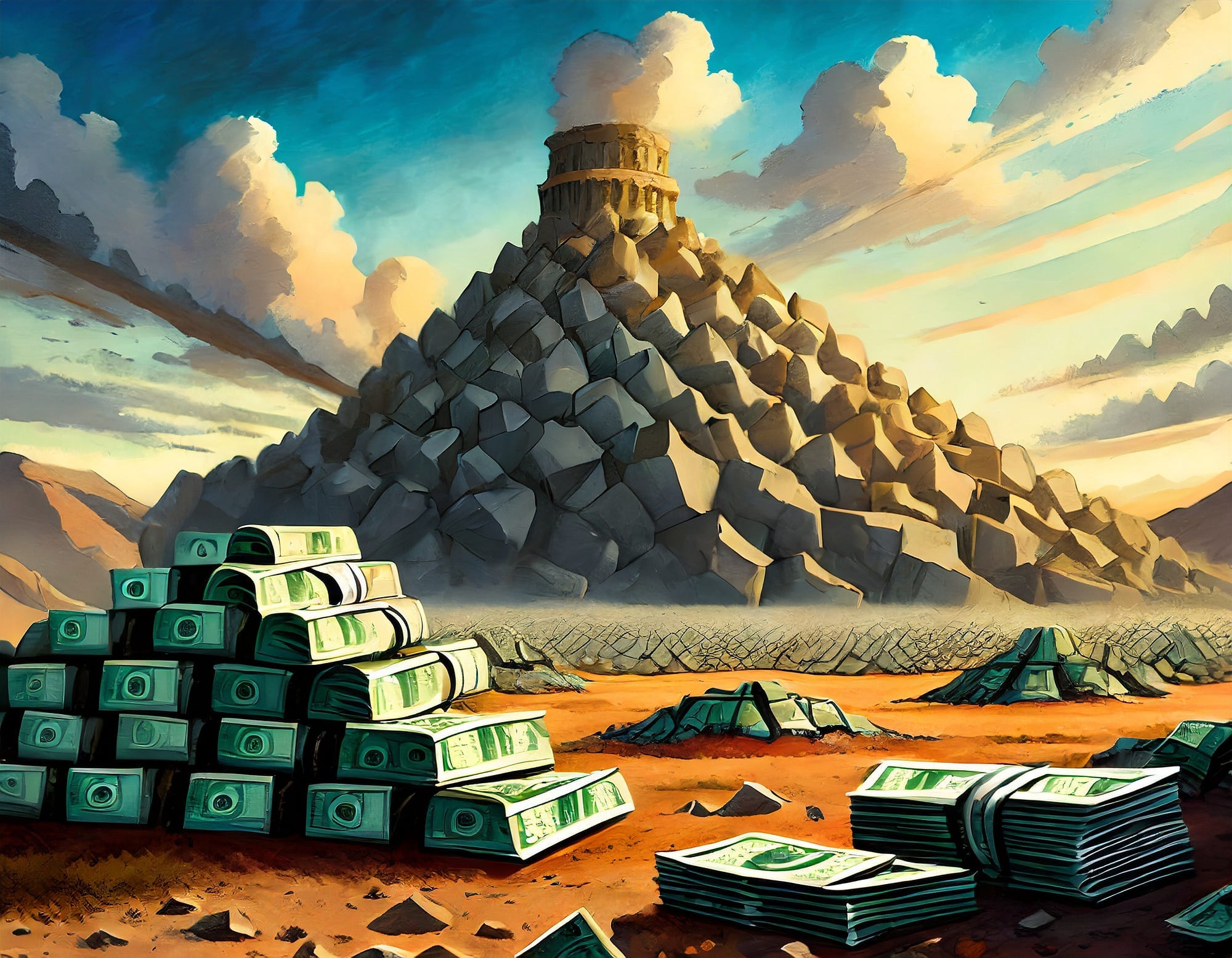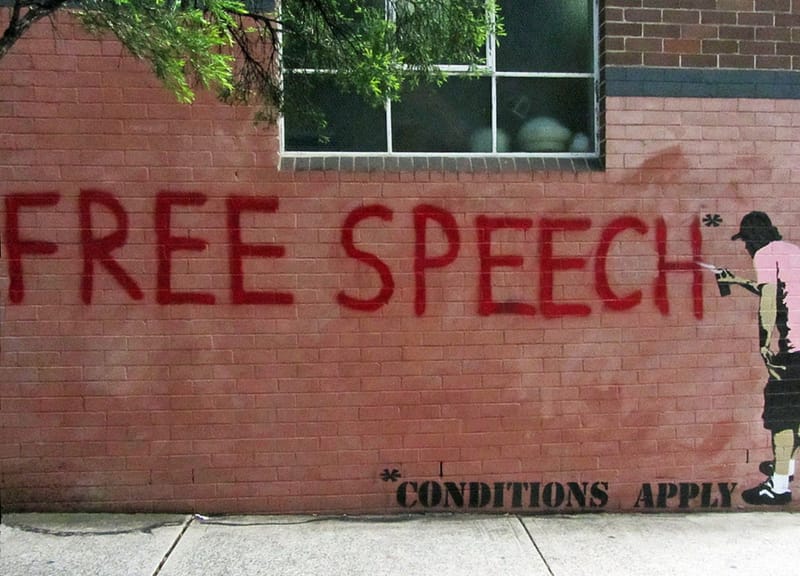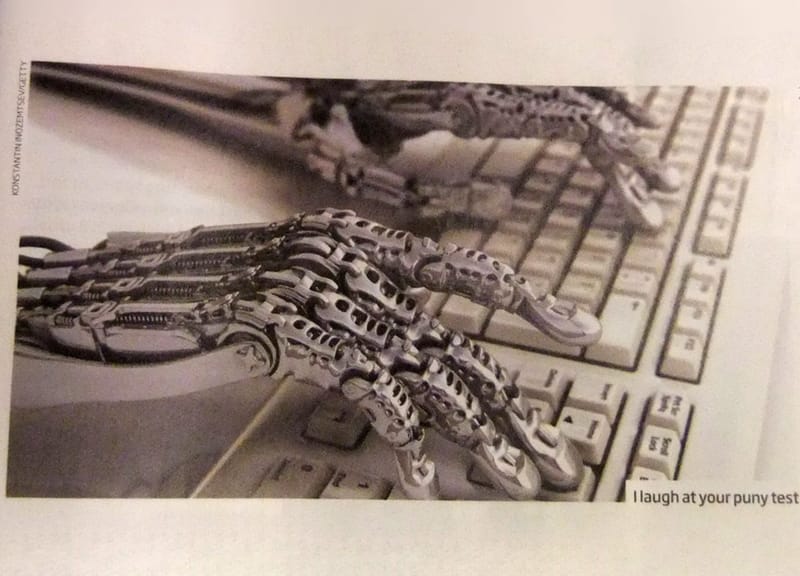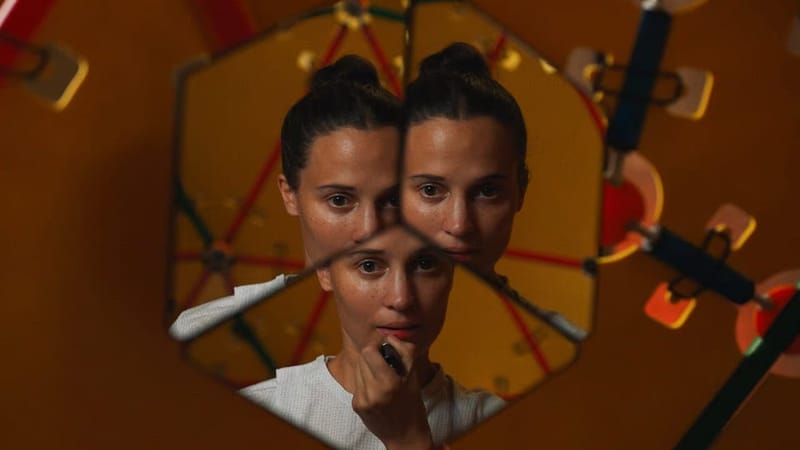Can democracy survive the climate crisis?
What democracy?

The existence of the climate crisis implies that democracy has never existed, and our inability to mitigate its devastating effects only revealing that the illusion of democracy serves to appease a populace whilst maintaining power in the palms of a small minority.
Why does the climate crisis imply the non-existence of democracy? Because democracy is a system of governance by the majority for the majority. Yet, the majority has never voted for, perpetuated nor benefited from the economic system which underwrites—and often overrides—the system of governance. And it is the economic system—founded on exploitation and extraction—which has created the climate crisis.
Despite even government advisers falling prey to the misunderstanding that our economy is somehow divorced from biophysical reality, its growth depends on the conversion of natural resources into wealth. This maladaptive human organisation rips out precious minerals from the earth’s crust, destroys biodiverse rainforests, fishes oceans, cages animals, and even enslaves our fellow humans, all in the name of economic growth. These resources—often living creatures—provide the energy needed for our economy to grow, much in the same way a mother’s milk provides the energy for her baby to grow. The output of this process, however, is not a bundle of joy, but wealth. In physics, this is the very definition of power: energy transferred or converted over time. Energy is never created nor destroyed, only ever transformed. Understanding this, wealth is never created nor destroyed, only transformed. Power is the capacity to convert natural abundance, belonging to and part of every single creature on this planet, into personal riches.
I ask, then, how can we live in a democracy when a small minority have enough power to destroy the entire planet while the rest of us can only look on in horror?
Fossil fuels have turbocharged the power of the minority, surpassing all previous physical limitations to extract, exploit and convert. They’re also responsible for 90% of GHG emissions, which is causing the planet to heat up, causing our oceans to acidify and our food systems to collapse. We must stop burning fossil fuels if the planet is to be habitable.
And so the powerful trot off to conferences to make promises they can never keep, given that states produce 90% of all fossil fuels in the world. If they were to stop, their economies would collapse, as would their seat of power. Collapsing that seat of power may give democracy a real chance, but, as long as they are committed to growth, to wealth and to power, our governments will continue to produce and buy fossil fuels.
And even if we did have a democratic revolution and elected a world of Green and real Labour movements who cancelled all the fossil fuel projects and committed to reducing our consumption, our wealth, our power, these new governments would face a barrage of law suits from the Investor-State-Dispute-Settlement court, the shadowy fifth arm of the world bank that that enables corporations to sue governments for loss of future profits when they enact their sovereign right to change their damn mind.
And even if we closed that court and taxed corporations and restricted lobbying, the system itself would dynamically react by creating new nodes of power to transform different kinds of energy into different kinds of wealth. Because it is programmed for growth and the rule of the minority.
A democracy demands a total reform of our institutions, our economic systems, our relationships and even the notion of statehood. Why should states, which have typically existed as institutions of wealth-conversion, continue to exist? Can we organise a small nation with free healthcare, housing, education, literature, art, opportunity and imagination without a state? Could small councils engaged in deliberative democratic processes do it better? More sustainably?
Thinking about the future of democracy demands imagining a world in which natural resources are used to furnish all living creatures with fulfilling lives. The moment they are used to sequester power—be it by an individual or a nation—we trigger the same systemic compulsion that results in a climate crisis, a biodiversity crisis, a water crisis, a health crisis, a living crisis. In no sane world would we ever encourage the conversion of natural abundance into sovereign wealth. As part of this planet’s ecosystem, we do not own the world but belong to it. As long as there are ideological fictions which dominate our reality to create arbitrary otherness with the Earth and each other, such as currencies, borders and gods, what we call “democracy” will only ever serve a minority.
© Rachel Donald
Planet: Critical is 100% independent and reader-funded. If you value it, and have the means, become a paid subscriber today!



